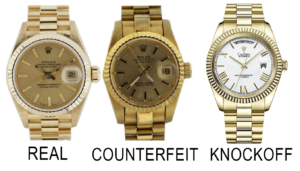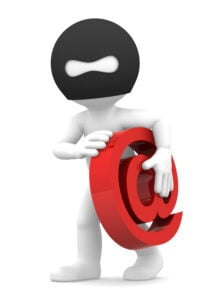
EIP Corporate Training
You need to know
You need to know
 Copyrights are unquestionably the least appreciated form of intellectual property. If we were in high school, patents would be the popular kids, trademarks would be the athletes, trade secrets would be the computer experts and gamers, but what about copyrights? Invisible, ignored, disrespected. But they shouldn’t be. They have value. They have purpose. And with the emergence and growth of the Internet, copyrights are beginning to climb the popularity ladder.
Copyrights are unquestionably the least appreciated form of intellectual property. If we were in high school, patents would be the popular kids, trademarks would be the athletes, trade secrets would be the computer experts and gamers, but what about copyrights? Invisible, ignored, disrespected. But they shouldn’t be. They have value. They have purpose. And with the emergence and growth of the Internet, copyrights are beginning to climb the popularity ladder.
A copyright is a form of protection provided to the creators of “original works of authorship.” This includes literary, dramatic, musical, artistic, and other intellectual works. These can be published or unpublished works. And they can be protectable copyrights as long as they’re fixed in a tangible medium. For example, if you sing a song, it’s not copyrightable unless you record it.
Now, do copyrights provide you with protection or exclusivity over your ideas? No. Copyright laws give you exclusive rights to the expression of your ideas; to the visual, or written, or audio embodiment of your ideas. Copyrights protect the way you express your idea, as opposed to the creative or inventive idea itself.

So, what materials are available for copyright protection? Well, let’s answer that with a few examples. Emails, video blogs, written blogs, podcasts, white papers, books, scripts, computer software code, video productions, movies, music and lyrics, graphics, images, photos, sound recordings, and architectural works. You can even get copyright protection on choreographies and pantomimes as long as they’re fixed in a tangible medium of expression.
From the very moment a work is created in a fixed form, the copyright becomes the property of the author who created it. Only the author, or those deriving rights from the author, can rightfully claim copyright. There is, though, an exception to this principle: it’s called “works made for hire;” or sometimes called simply a work for hire. If a work is made for hire, an employer is considered the author of an employee’s work, which means the employer owns it. Now, there’s one other way for an employer, or any other non-author, to obtain ownership of an author’s work, which is by contract. An assignment agreement is typically used to transfer ownership of an author’s work.
Copyright law protects a work from the time it’s created in a fixed form. From that very moment, the copyright becomes the property of the author who created it. That protection is automatic. Only the author, or those deriving rights from the author, can rightfully claim copyright.
A copyright gives you the exclusive right to reproduce your material, prepare derivative works based upon your material, distribute copies by sale or otherwise, and publicly display or perform the work. Put another way, a more practical way, your copyright gives you the right to prevent other people from doing those things.
A derivative work is a work based upon, or derived, from one or more already existing works. The interesting thing is that a derivative work can itself be copyrightable if it includes an “original work of authorship.” If it’s copyrightable, you can get a copyright, an exclusive right, but if it’s derived from copyrighted material, you are likely committing copyright infringement simply by creating it without permission.
So, what are some examples of derivative works? A documentary that contains other people’s footage and photographs; a motion picture based on a play or novel; a novel translated from German to English; a sculpture based on a drawing; or a drawing based upon a sculpture. All of these are derivative works, and while all of these could be copyrightable in their own right, they are also likely infringing the original copyrighted work.
 What is copyright infringement?
What is copyright infringement? Well, simply, copyright infringement is the use of copyrighted works without permission. This can mean making or distributing copies, and it can also mean making or distributing derivative works of copyrighted material.
A common risk is copying documents, images, and videos from the web and using them in your presentations or on your website or in your marketing material. Keep in mind, there are massive companies with millions of images and videos that are spread all over the web, and they make a living by suing people who copy those images and videos without permission. Another common risk relates to copying material from your competitors and leveraging that material in connection with your own commercial offerings. Just as you are watching everything they do, they are watching everything you do.
A simple way to avoid infringement, though, is by refraining from copying any written, graphic, video, software, or audio material without first seeking advice from IP counsel.
 Is copyright infringement litigation expensive in the US?
Is copyright infringement litigation expensive in the US?How expensive is to litigate your copyrights through final disposition? Well, the American Intellectual Property Law Association conducted a survey and determined that in 2015 the average costs of litigation with less than $1Million USD at risk were $250,000 dollars; with between $1Million and $10Million at risk, $500,000 dollars; with between $10Million and $25Million, $750,000 dollars; and with more than $25Million at risk, the average costs were $1.2Million USD through final disposition. Now, what these numbers do not contemplate are the massive costs associated with distractions to executives, managers, and key engineers during years of discovery, depositions, and trial.
Do you need a federal copyright registration to have a valid copyright? Well, the answer is both no and yes. Here’s what I mean. A federal copyright registration is not a condition of copyright protection. You have a copyright the moment you fix your work in a tangible medium; even if you don’t publish it. But, the US government wants you to file for registration. So, they’ve created some powerful incentives to get you to do that.
Well, first, you need to register before you can file an action for copyright infringement in federal court. Second, if you get your copyright registration before, or within five years of publication, during litigation, your copyright will be presumed valid. Third, if you get your registration within three months after publication of your work, or prior to an infringement of your work, you have the opportunity to get statutory damages and attorney’s fees. This essentially means that without even proving your damages or the infringer’s profits, you can get an award of statutory damages for up to $30,000 for each work that’s infringed. And, if you can show that the infringer knew they were infringing and they did it anyway, the court can increase that statutory damage award up to $150,000. Finally, copyright registration allows the copyright owner to record the registration with the U.S. Customs Service for protection against the importation of infringing copies.
If you want to register a work for federal copyright protection, you can do so through the United States Copyright Office.
Yes, like many things in life, there are exceptions. The most popular exception to this right to prevent other people from copying is known as fair use. Now, fair use sounds like a concept that’s simple and clear. It’s not, though. It’s unquestionably not cut and dry. In fact, millions and millions have been spent over the years litigating that very issue. And I’m not going to waste your time or bore you in this article discussing the factors and analysis courts use in deciding on the fair use defense in a copyright infringement. So let me just say that fair use essentially provides limited copying rights to copyrighted material for things like news reporting, parody, criticism and commentary, teaching, and research. But, beware, again, it’s way more complicated than that. Speak to your copyright lawyer before you conclude that your use of copyrighted material is fair use.
 Does every nation have the same laws regarding copyrights?
Does every nation have the same laws regarding copyrights? Well, yes and no. Yes, because there are many important similarities among the copyright laws of different nations. But no, because each nation has their own copyright laws and there can be just as many differences. These differences can impact what can be copyrighted, how long copyright protection will last, and to what extent those copyrights can be enforced. So, let me say what I’m sure you’re already thinking, to obtain the most effective copyright protection in a given nation, you need to work with local agents who understand the laws there. Now, it’s worth mentioning that there is something called the Berne Convention that essentially gives copyright owners of one nation protection in the other Berne Convention nations. Berne member nations must give the same protection to the works of copyright owners in other member nations as they would give to copyright owners of their own nation.
So, to conclude, if you are the creator of an original work of authorship, a copyright can offer important protection: it can give you the exclusive right to use and distribute your work. But, you need to be careful, because you don’t want to infringe someone else’s copyright. And thanks to some amazing internet technology, there are now copyright trolls. They have tools for searching the web, all day and all night, looking for infringing content on the web. And, copyright trolls are all about the money; actually, to be more specific, they’re all about your money. So, when it comes to copyrights, be smart and beware. Just because it’s available on the internet, that doesn’t mean you can copy it.
If you ever have questions related to your copyrights or the copyrights of others, your best bet is to contact a knowledgeable intellectual property lawyer.
Thomas J. Colson, Esq.